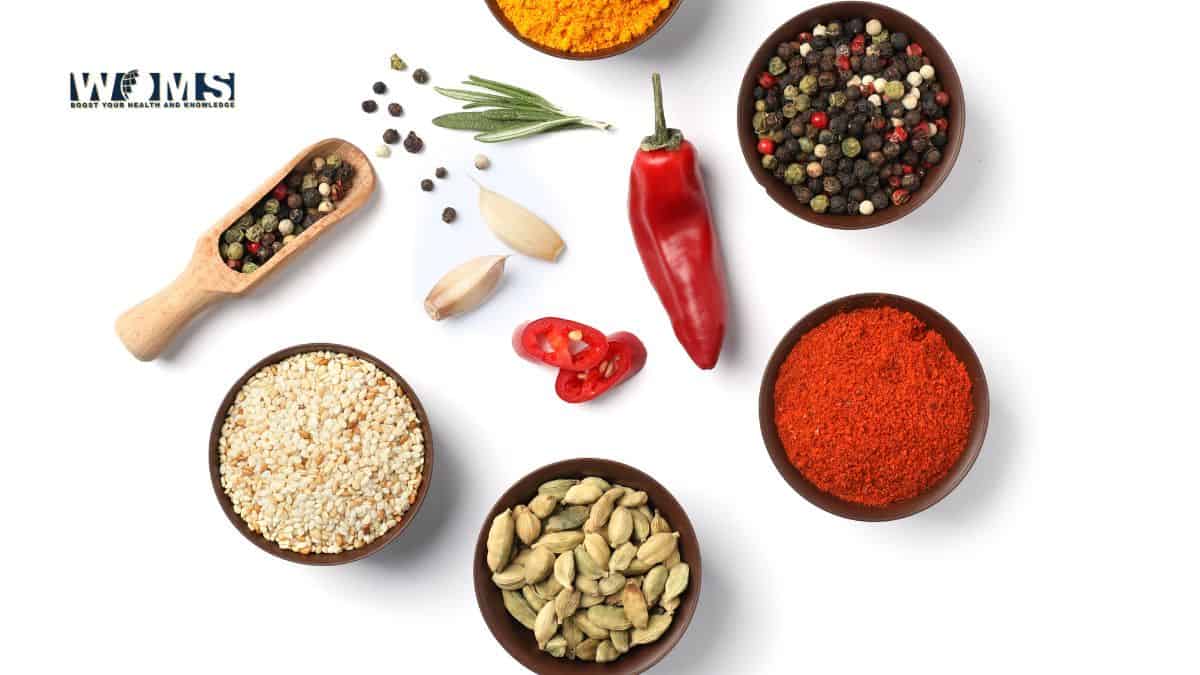The Effects of Spicy Foods on Digestion

Many people long ago believed that eating bland foods was the cure for an upset stomach. These include white rice, plain white toast, and bananas. Spicy foods were thought to damage the intestinal tract, causing diarrhea, stomach ulcers, etc. So, let’s know about the effects of spicy foods on digestion.
Most fell for that concept because they often experienced stomach pain and discomfort after eating spicy and flavorful dishes. This is why the treatment involves a bland diet. But somehow, the long-held belief turns out to be true in some situations.
However, these assumptions only made people think about how other cultures consume spices. Contrary to popular belief, some incorporate spices in most dishes, while others use them as medicine. This means that not all spices are harmful to your stomach.
Some studies revealed that spices might positively affect the digestive system and other health aspects. However, some studies also indicate that spicy foods may cause other digestive issues, such as irritable bowel syndrome.
That may sound confusing, right? So, if you’re curious about the effects of spicy foods on your digestion, this post may help. In this article, you’ll discover how spicy foods affect your digestive system, so keep scrolling to learn more.
Spicy Foods May Cause Heartburn
Heartburn means your esophagus is irritated, so it occurs when the stomach acid flows back to your esophagus. This is why you’re experiencing a burning sensation around your chest.
On the other hand, heartburn is not linked to any heart ailment or condition. It’s called heartburn because the symptoms are often similar to those of heart diseases. Such symptoms may include:
- Burning sensation in the middle of your heart
- Hot and acidic back of the throat
- Having difficulty swallowing
Spicy foods may cause stomach burning after eating, leading to heartburn. This is because they trigger acid reflux, pushing the gastric juices into your esophagus. Also, the compound capsaicin in most spicy foods may slow down your digestion, which increases your risk of experiencing heartburn.
Spicy Foods May Exacerbate Skin Conditions
Have you ever touched your face after eating spicy foods? Your skin probably feels like burning, right? Spicy foods and ingredients are among the usual suspects of irritations concerning existing skin conditions, which may cause flare-ups.
In addition, the adverse effects you may experience from consuming spicy foods may increase the likelihood of severe breakouts. Why? Because after you munch on spicy dishes, your internal temperature rises, producing sweat. This triggers oil production in the skin, which encourages bacterial growth, causing and aggravating skin conditions, particularly acne.
Aside from breakouts, spicy foods may have been connected to some digestive concerns. When you eat spicy foods, your gut may be inflamed, causing acid reflux, upset stomach, and other symptoms. Sometimes, this inflammation may exacerbate acne breakouts, skin flushing, and even eczema. This is why eating spicy foods should be in moderation, especially when you suffer from skin conditions.
Spicy Foods May Cause Diarrhea
Most spicy foods contain capsaicin, especially those made with hot spices like cayenne pepper. This is responsible for the heat you feel when eating hot and spicy foods. As you eat more of this compound, your body produces a protein called vanilloid receptor-1, which sends a message to the brain, causing you to feel a burning sensation inside.
Your brain will try to adapt to the situation and produce more endorphins to block the pain from the burning sensation. This is why you feel happy and energetic when eating hot and spicy foods. It’s also why you incessantly crave more when eating spicy dishes like wings.
Your small intestine will immediately push the capsaicin out of your gut to protect you from the harm your brain senses. When the food arrives in your colon, the process usually decelerates. However, the compound also stimulates receptors in this area. This speeds up digestion, making you run back and forth with diarrhea.
Diarrhea caused by spicy foods is usually gone after a couple of days. Taking a break from eating spicy foods may save you from one of your worst nightmares. However, if the condition persists for a week or so and causes dehydration, it’s best to consult your doctor immediately.
Spicy Foods May Boost Your Metabolism
The capsaicin found in spicy foods may help boost metabolism. It seems to enhance the body’s fat-burning ability. In other words, the compound may aid your body in burning more energy and breaking down more fat. This may help obese and overweight individuals on their weight loss journey.
Spicy Foods May Have Other Positive Effects On Your Digestion
Common spices that may offer significant benefits to your digestive system are capsaicin and curcumin. As mentioned earlier, capsaicin comes from hot peppers. On the other hand, curcumin is one of the prevalent compounds in turmeric.
Below are the positive effects of capsaicin on your digestive system:
- It stops the production of acid in your stomach.
- It stimulates the production of saliva, which may aid the digestion process.
- It inhibits enzyme production, improving the function of the digestive system.
- It boosts digestion by secreting more gastric fluids in your stomach.
- It improves gastric ulcers by stimulating alkali and blood flow to the mucous membrane of your stomach.
- It helps fight bacterial infections, particularly those caused by the bacterium known as Helicobacter pylori.
On the other hand, below are some benefits of curcumin to your digestive system:
- It promotes healthy digestion, thanks to its anti-inflammatory properties and antioxidants.
- It helps treat functional dyspepsia, flatulence, and acid reflux.
- It helps treat the inflamed gut, improving the efficiency of your digestion.
- It may treat digestive conditions, such as irritable bowel syndrome, by blocking specific pain receptors.
As you can see, not all the time, capsaicin can cause negative effects in the body as long as it’s taken in moderation. Otherwise, you’ll experience other effects discussed above. Also, it’s worth noting the effects of curcumin on the body. This is why people are hooked on using turmeric in their everyday lives.
Final Words
Spicy foods offer positive and negative effects on your digestion. The key to a healthy digestive system is eating spicy and flavorful dishes in moderation—not too much (to prevent digestive issues) and not too little (just enough to maximize its benefits).
Furthermore, if you experience persistent medical conditions after eating spicy foods, such as diarrhea, talk to your doctor right away to address the issues as soon as possible.




